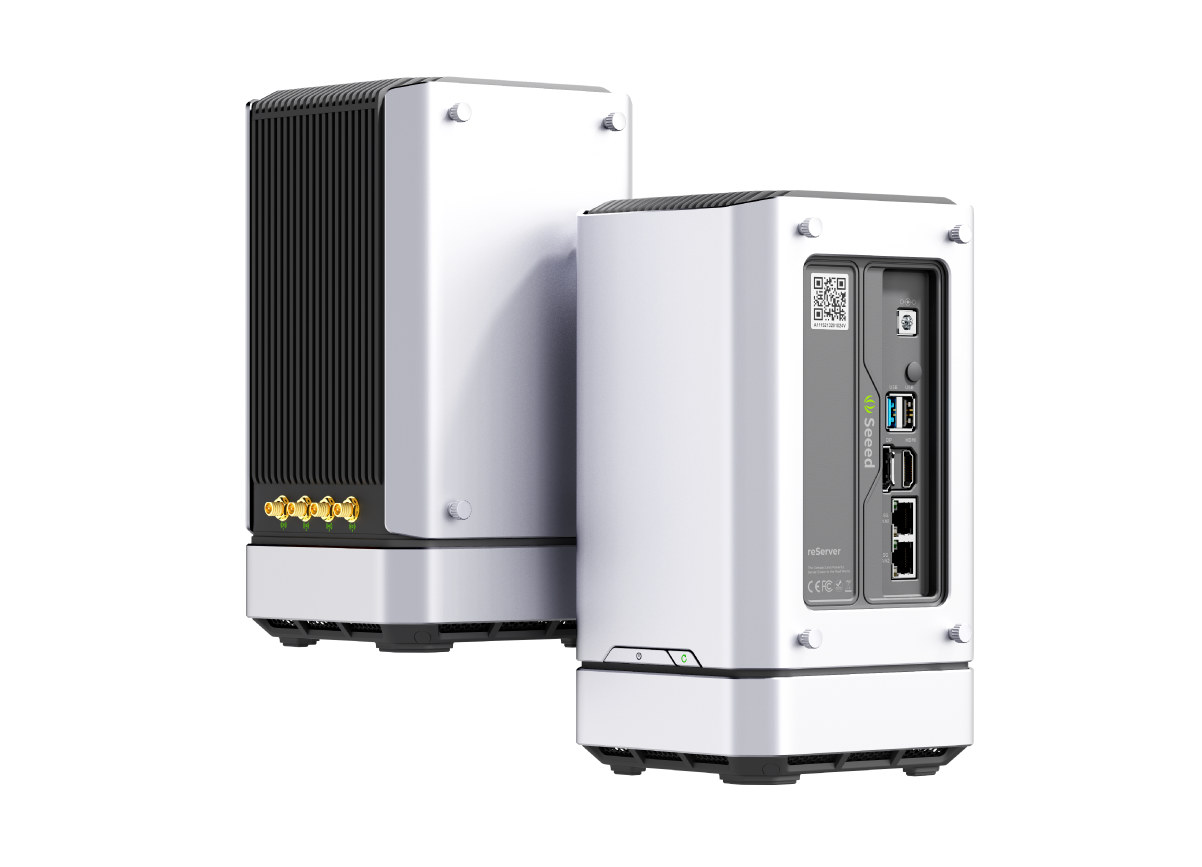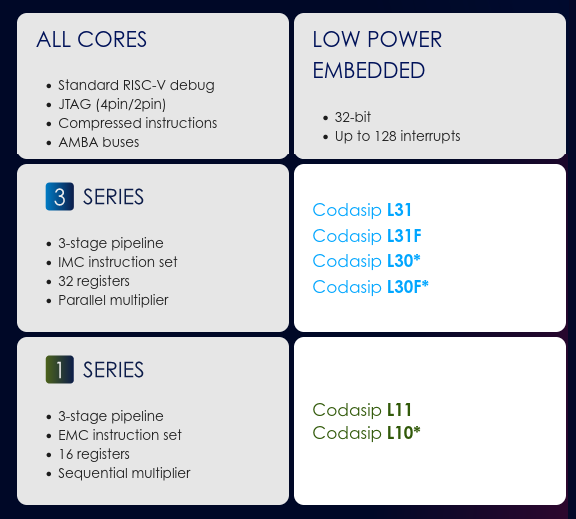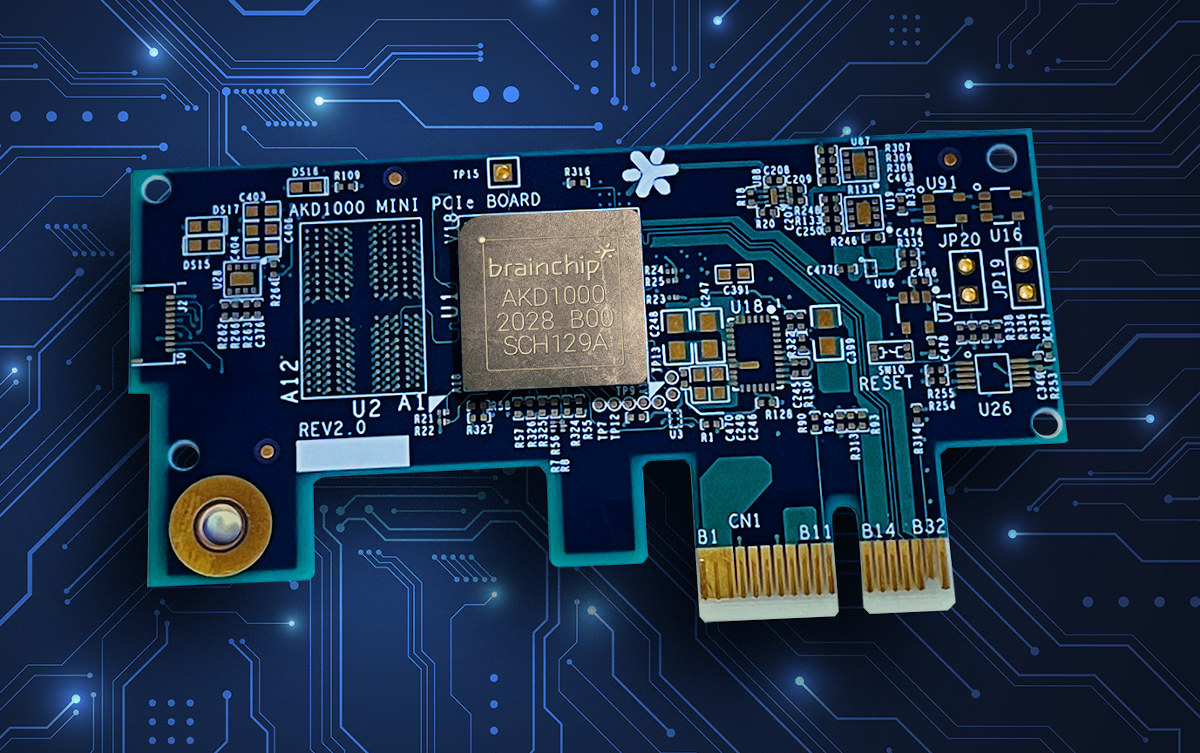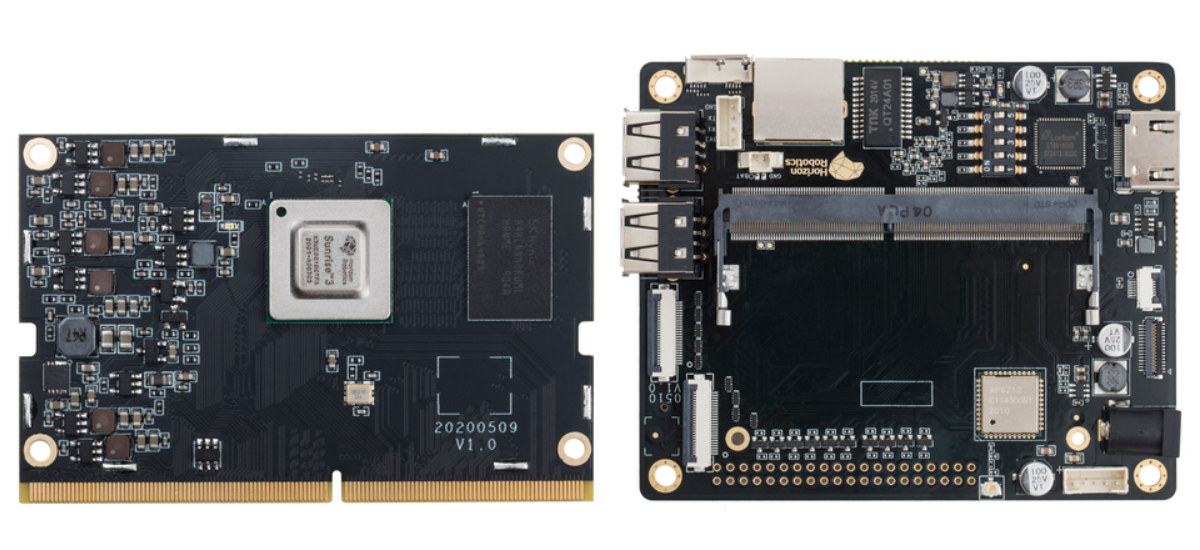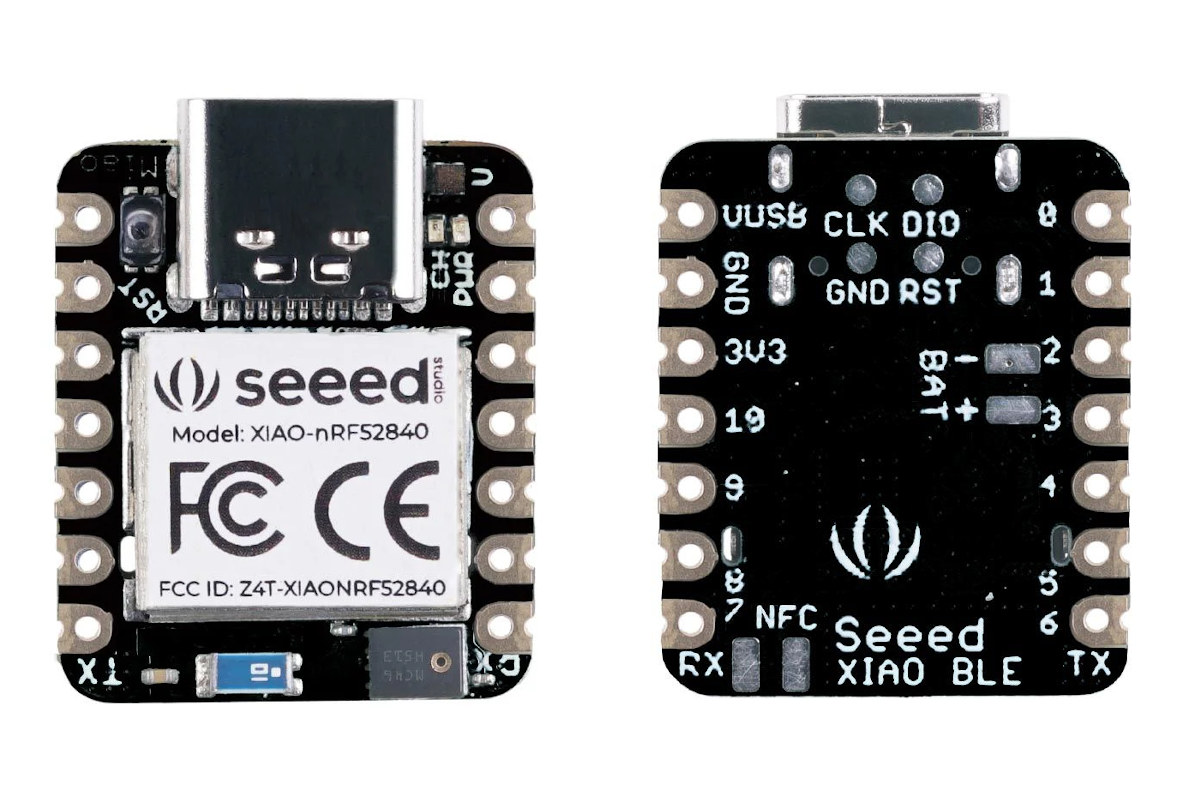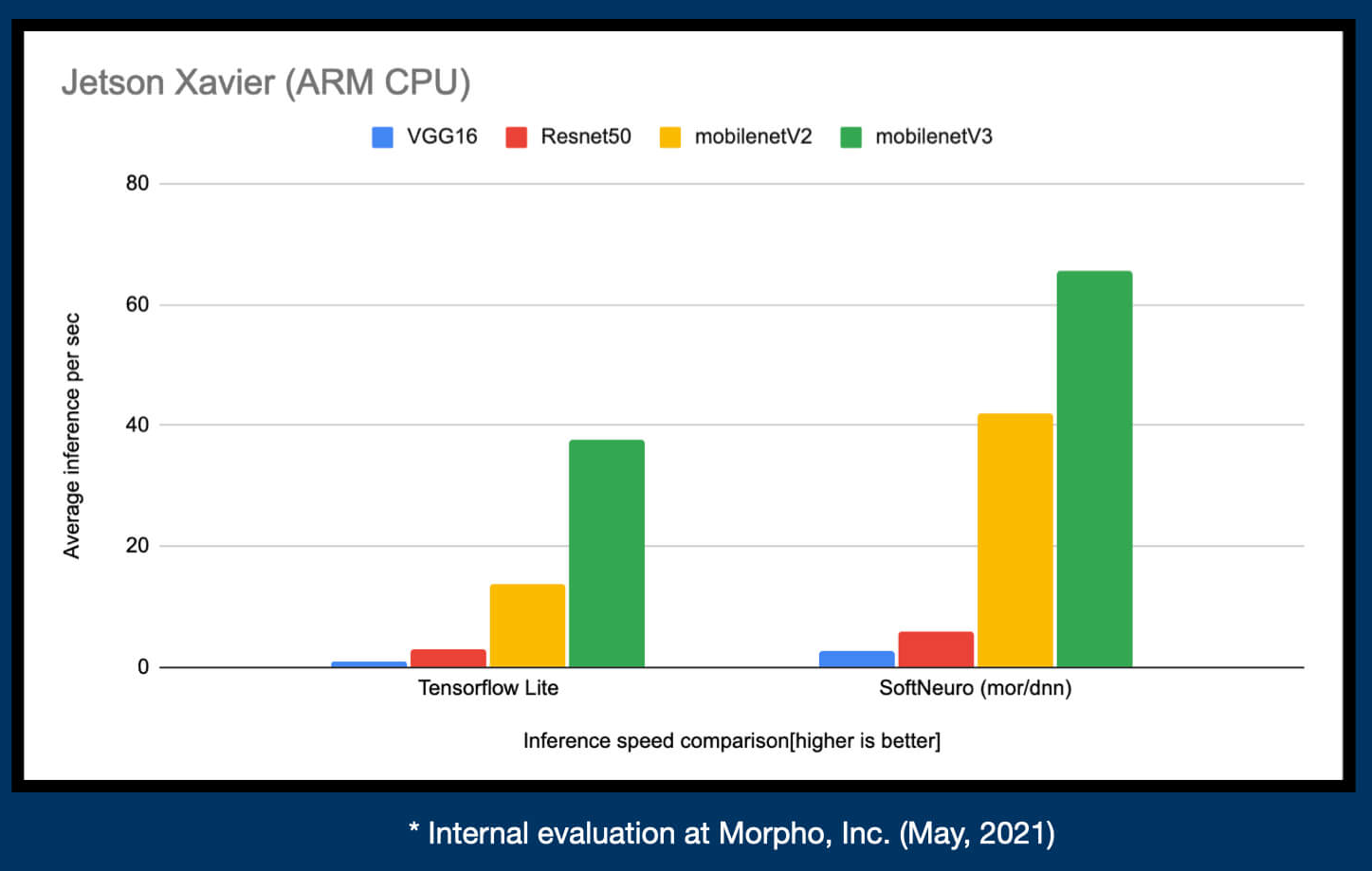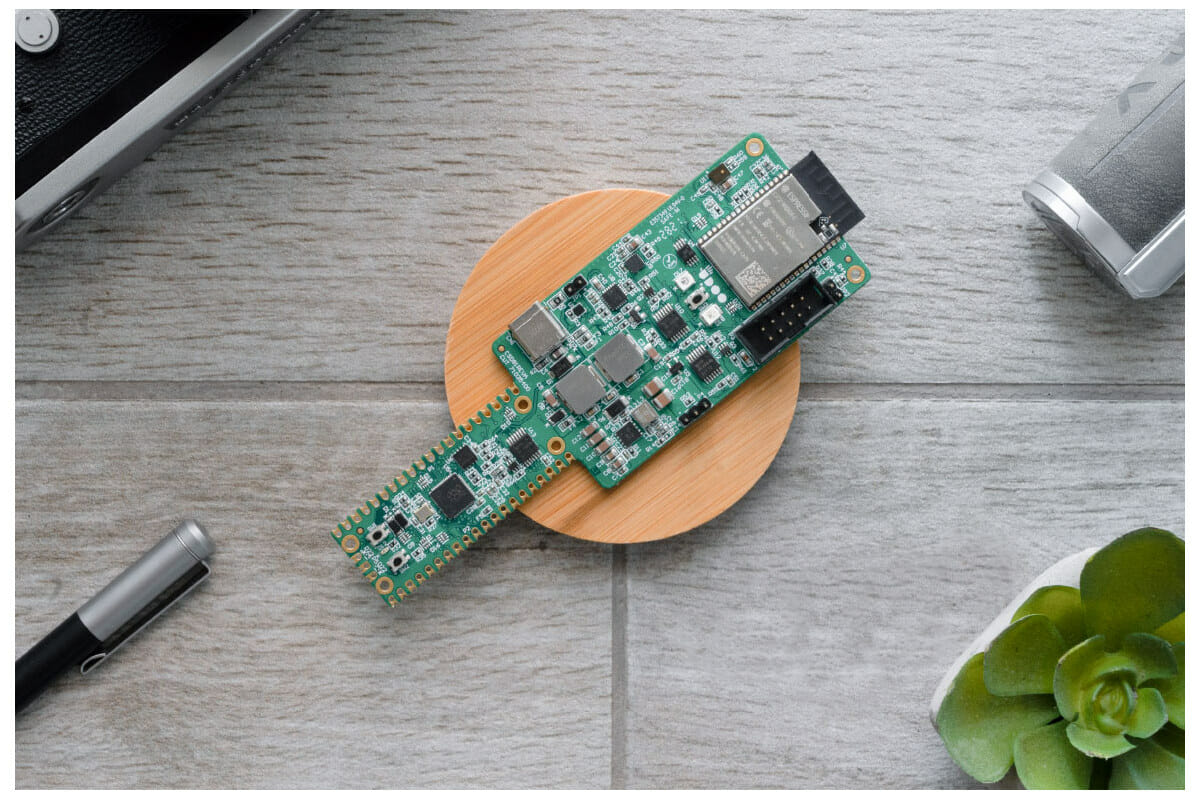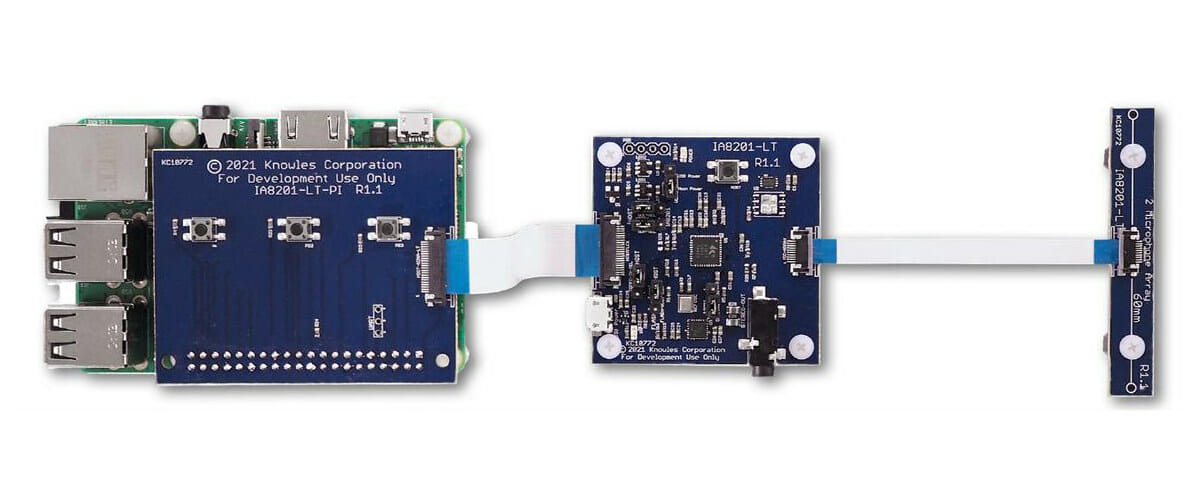reServer Jetson-50-1-H4 is an AI inference edge server powered by Jetson AGX Orin 64GB with up to 275 TOPS of AI performance, and based on the same form factor as Seeed Studio’s reServer 2-bay multimedia NAS introduced last year with an Intel Core Tiger Lake single board computer. The 12-core Arm server comes with 32GB LPDDR5, a 256GB NVMe SSD pre-loaded with the Jetpack SDK and the open-source Triton Inference server, two SATA bays for 2.5-inch and 3.5-inch drives, up to 10 Gbps Ethernet, dual 8K video output via HDMI and DisplayPort, USB 3.2 ports, and more. reServer Jetson-50-1-H4 (preliminary) specifications: SoM – Jetson AGX Orin module with CPU – 12-core Arm Cortex-A78AE v8.2 64-bit processor with 3MB L2 + 6MB L3 cache GPU / AI accelerators NVIDIA Ampere architecture with 2048 NVIDIA CUDA cores and 64 Tensor Cores @ 1.3 GHz DL Accelerator – 2x NVDLA v2.0 Vision Accelerator […]
Codasip L31 and L11 RISC-V cores for AI/ML support TFLite Micro, customizations
Codasip has announced the L31 and L11 low-power embedded RISC-V processor cores optimized for customization of AI/ML IoT edge applications with power and size constraints. The company further explains the new L31/L11 RISC-V cores can run Google’s TensorFlow Lite for Microcontrollers (TFLite Micro) and can be optimized for specific applications through Codasip Studio RISC-V design tools. As I understand it, this can be done by the customers themselves thanks to a full architecture license as stated by Codasip CTO, Zdeněk Přikryl: Licensing the CodAL description of a RISC-V core gives Codasip customers a full architecture license enabling both the ISA and microarchitecture to be customized. The new L11/31 cores make it even easier to add features our customers were asking for, such as edge AI, into the smallest, lowest power embedded processor designs. The ability to customize the cores is important for AI and ML applications since the data types, […]
$499 BrainChip AKD1000 PCIe board enables AI inference and training at the edge
BrainChip has announced the availability of the Akida AKD1000 (mini) PCIe boards based on the company’s neuromorphic processor of the same name and relying on spiking neural networks (SNN) which to deliver real-time inference in a way that is much more efficient than “traditional” AI chips based on CNN (convolutional neural network) technology. The mini PCIe card was previously found in development kits based on Raspberry Pi or an Intel (x86) mini PC to let partners, large enterprises, and OEMs evaluate the Akida AKD1000 chip. The news is today is simply that the card can easily be purchased in single units or quantities for integration into third-party products. BrainChip AKD1000 PCIe card specifications: AI accelerator – Akida AKD1000 with Arm Cortex-M4 real-time core @ 300MHz System Memory – 256Mbit x 16 bytes LPDDR4 SDRAM @ 2400MT/s Storage – Quad SPI 128Mb NOR flash @ 12.5MHz Host interface – 5GT/s PCI […]
Horizon X3 AI development board is powered by Sunrise 3 AI Edge Arm processor
Horizon X3 AI development board is powered by Horizon Robotics Sunrise 3 (aka X3) quad-core Cortex-A53 processor with a 5 TOPS NPU, and multiple camera support with the chip apparently designed for the automotive industry. [Update January 25, 2022: A third-party company, Finsbury Glover Hering, claiming to represent Horizon Robotics informed CNX Software the chip is not designed for the automotive market, and that Horizon’s AIoT business is actually limited to the domestic China market and not overseas.] The devkit is comprised of a Sunrise 3 system-on-module with 1GB LPDDR4 & 16GB EMMC memory, as well as a baseboard with Gigabit Ethernet and WiFi, HDMI up to 1080p60 and MIPI DSI interface, a camera interface, and a 40-pin header for expansion. Horizon X3 AI development board specifications: SoC – Horizon Robotics Sunrise 3 quad-core Cortex-A53 processor @ 1.2 GHz, one Cortex-R5 core, a 5 TOPS NPU (2x “Bernoulli” BPU) System […]
Seeed XIAO BLE – A tiny nRF52840 Bluetooth 5.0 board with (optional) IMU sensor and microphone
Seeed Studio has just introduced two new members to their XIAO board family with the Seeed XIAO BLE and XIAO BLE Sense boards equipped with Nordic Semi nRF52840 Bluetooth 5.0 microcontroller, as well as an IMU sensor and microphone on the “Sense” model. Just like the earlier XIAO RP2040 board, the tiny Seed XIAO BLE board can be programmed with Arduino, MicroPython, and CircuityPython, and offers two headers with 7-pin each for GPIOs. What’s really new is the wireless connectivity, the sensors, and a battery charging circuitry. Seeed XIAO BLE specifications: Wireless MCU – Nordic nRF52840 Arm Cortex-M4F microcontroller @ up to 64 MHz with 1 MB flash, 256 KB SRAM, Bluetooth 5.0, NFC, Zigbee connectivity Storage – 2 MB QSPI flash Expansion I/Os 2x 7-pin headers with 1x UART, 1x I2C, 1x SPI, 1x NFC, 1x SWD, 11x GPIO (PWM), 6x ADC 3.3V I/O voltage (not 5V tolerant) Sensors […]
Download a free trial of the SoftNeuro Deep Learning SDK for Intel and Arm targets (Sponsored)
Morpho, a global research & development company established in Japan in 2004 and specialized in imaging technology, is now offering a free trial for the SoftNeuro deep learning SDK working on Intel processors with AVX2 SIMD extensions, 64-bit Arm targets, while also leveraging OpenCL and/or CUDA. Some of the advantages of SoftNeuro are that the framework is easy to use even for those without any knowledge about deep learning, it’s fast thanks to the separation of the layers and their execution patterns, and it can run on several different hardware and OS being cross-platform. SoftNeuro relies on its own storage format (DNN format) to deliver the above advantages. But you can still use models trained with any mainstream deep learning framework. TensorFlow and Keras models can be directly converted to the DNN format, while models from other frameworks can be converted first to the ONNX format and then to the […]
UDOO KEY ESP32 & RP2040 board launched for $4 (Crowdfunding)
UDOO is known for its x86 boards that embed an Arduino compatible MCU, but the UDOO KEY is different, as it does without an Intel or AMD processor, and instead, combines Raspberry Pi RP2040 microcontroller with Espressif ESP32 WiFi & Bluetooth WiSoC. As we noted in the past combining Raspberry Pi Pico/RP2040 with ESP32 does not make a lot of sense in most cases, but here’s the UDOO KEY will be offered for just $4 for the first 1,000 units, so they’ll basically throw the ESP32 for free since it’s the same price as one Raspberry Pi Pico, before eventually selling the device for $20. UDOO KEY specifications: MCU- Raspberry Pi RP2040 dual-core Arm Cortex-M0+ microcontroller @ 133 MHz with 264KB of on-chip SRAM Storage – 8MB QSPI Flash for RP2040 Wireless module – ESP32-WROVER-E with ESP32-D0WD-V3 dual-core WiFi + Bluetooth SoC, 16MB SPI flash, and 8MB PSRAM Sensor – […]
Raspberry Pi smart audio devkit features AISonic IA8201 DSP, microphone array
Knowles AISonic IA8201 Raspberry Pi development kit is designed to bring voice, audio edge processing, and machine learning (ML) listening capabilities to various systems, and can be used to evaluate the company’s AISonic IA8201 DSP that was introduced about two years ago. The kit is comprised of three boards with an adapter board with three buttons connecting to the Raspberry Pi, as well as the AISonic IA8210 DSP board itself connected via a flat cable to a microphone array. Knowles AISonic Raspberry Pi development kit Knowles did not provide the full details for the development but says it enables wake-on-voice processing for low latency voice UI, noise reduction, context awareness, and accelerated machine learning inferencing for edge processing of sensor inputs. Some of the use cases include Low Power Voice Wake to listen for specific OEM keywords to wake the host processor, Proximity Detection when combined with an ultrasonic capable […]


